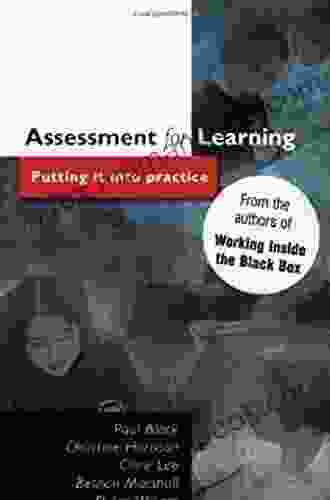The Impact of Soviet Music on Society Under Lenin and Stalin

Music played a vital role in Soviet society under the leadership of Vladimir Lenin and Joseph Stalin. It was used as a powerful tool of propaganda, social engineering, and cultural control. This article explores the complex relationship between Soviet music and society during this period.
4 out of 5
| Language | : | English |
| File size | : | 5083 KB |
| Text-to-Speech | : | Enabled |
| Screen Reader | : | Supported |
| Enhanced typesetting | : | Enabled |
| Print length | : | 258 pages |
Music as Propaganda
Under Lenin and Stalin, music was used extensively as a means of promoting the communist ideology. Composers were encouraged to create works that glorified the Soviet Union, its leaders, and its achievements. These works were often performed at mass rallies, parades, and other public events.
One of the most famous examples of Soviet propaganda music is the "Internationale," which became the anthem of the Soviet Union. This song was written by Eugene Pottier in 1871 and was originally intended to be a revolutionary anthem for the international working class. However, it was adopted by the Bolsheviks in 1917 and became a symbol of the Soviet regime.
Another popular form of Soviet propaganda music was the "mass song." These songs were typically simple and easy to sing, and they often contained lyrics that praised the Soviet Union and its leaders. Mass songs were often used to motivate workers and peasants to increase their productivity.
Music as Social Engineering
In addition to its role as propaganda, music was also used as a tool of social engineering in the Soviet Union. The government believed that music could be used to shape the minds and behavior of the people. Composers were encouraged to create works that would promote the socialist values of collectivism, equality, and internationalism.
One example of Soviet social engineering music is the work of Sergei Prokofiev. Prokofiev was one of the most famous Soviet composers of the 20th century, and his works often reflected the political and ideological shifts of the period.
In the 1920s, Prokofiev wrote a number of works that celebrated the October Revolution and the early years of the Soviet Union. However, in the 1930s, Prokofiev's music became more somber and reflective, as he witnessed the rise of Stalinism and the Great Terror.
Music as Cultural Control
Music was also used as a tool of cultural control in the Soviet Union. The government strictly censored all forms of music, and any music that was deemed to be "bourgeois" or "decadent" was banned.
The government also used music to promote its own cultural values. For example, the government encouraged the development of folk music and traditional dance, which were seen as symbols of the Russian people.
The government also promoted the development of socialist realism in music. Socialist realism was a style of art that was intended to glorify the Soviet Union and its achievements.
The Impact of Soviet Music on Society
The impact of Soviet music on society was profound. Music was used to promote the communist ideology, to shape the minds and behavior of the people, and to control the culture of the Soviet Union.
Soviet music also had a significant impact on the development of music in other countries. For example, the works of Dmitri Shostakovich and other Soviet composers were performed and studied all over the world.
The legacy of Soviet music is complex and controversial. However, there is no doubt that music played a vital role in the shaping of Soviet society under Lenin and Stalin.
Music was a powerful tool of propaganda, social engineering, and cultural control in the Soviet Union under Lenin and Stalin. It reflected the political and ideological shifts of the period, and it had a significant impact on the development of music in the Soviet Union and beyond.
4 out of 5
| Language | : | English |
| File size | : | 5083 KB |
| Text-to-Speech | : | Enabled |
| Screen Reader | : | Supported |
| Enhanced typesetting | : | Enabled |
| Print length | : | 258 pages |
Do you want to contribute by writing guest posts on this blog?
Please contact us and send us a resume of previous articles that you have written.
 Top Book
Top Book Novel
Novel Fiction
Fiction Nonfiction
Nonfiction Literature
Literature Paperback
Paperback Hardcover
Hardcover E-book
E-book Audiobook
Audiobook Bestseller
Bestseller Classic
Classic Mystery
Mystery Thriller
Thriller Romance
Romance Fantasy
Fantasy Science Fiction
Science Fiction Biography
Biography Memoir
Memoir Autobiography
Autobiography Poetry
Poetry Drama
Drama Historical Fiction
Historical Fiction Self-help
Self-help Young Adult
Young Adult Childrens Books
Childrens Books Graphic Novel
Graphic Novel Anthology
Anthology Series
Series Encyclopedia
Encyclopedia Reference
Reference Guidebook
Guidebook Textbook
Textbook Workbook
Workbook Journal
Journal Diary
Diary Manuscript
Manuscript Folio
Folio Pulp Fiction
Pulp Fiction Short Stories
Short Stories Fairy Tales
Fairy Tales Fables
Fables Mythology
Mythology Philosophy
Philosophy Religion
Religion Spirituality
Spirituality Essays
Essays Critique
Critique Commentary
Commentary Glossary
Glossary Bibliography
Bibliography Index
Index Table of Contents
Table of Contents Preface
Preface Introduction
Introduction Foreword
Foreword Afterword
Afterword Appendices
Appendices Annotations
Annotations Footnotes
Footnotes Epilogue
Epilogue Prologue
Prologue Lance T Izumi
Lance T Izumi Richard Vague
Richard Vague Virginia Woolf
Virginia Woolf Dr Dee Bell Williams
Dr Dee Bell Williams Aaron Brummett
Aaron Brummett Shasta Press
Shasta Press Thomas T
Thomas T Khalil Jal
Khalil Jal David Poyer
David Poyer Jay Mooreland
Jay Mooreland Holly Stein
Holly Stein Mikel Classen
Mikel Classen Sarah Mitchell Hansen
Sarah Mitchell Hansen Eric Thomas Weber
Eric Thomas Weber Alice Wilson
Alice Wilson Nikki Haverstock
Nikki Haverstock Jennifer Polimino
Jennifer Polimino Radley Balko
Radley Balko William Meikle
William Meikle Lisa Vanallen
Lisa Vanallen
Light bulbAdvertise smarter! Our strategic ad space ensures maximum exposure. Reserve your spot today!

 Eric NelsonWe Are Bone and Earth: Exploring the Point in Time Collection at the Museum...
Eric NelsonWe Are Bone and Earth: Exploring the Point in Time Collection at the Museum... John Dos PassosFollow ·4.3k
John Dos PassosFollow ·4.3k Ivan TurnerFollow ·16.7k
Ivan TurnerFollow ·16.7k Gabriel Garcia MarquezFollow ·6.8k
Gabriel Garcia MarquezFollow ·6.8k Joseph HellerFollow ·5.5k
Joseph HellerFollow ·5.5k Jack ButlerFollow ·15.8k
Jack ButlerFollow ·15.8k Ernest PowellFollow ·7.3k
Ernest PowellFollow ·7.3k Emanuel BellFollow ·19.5k
Emanuel BellFollow ·19.5k Devon MitchellFollow ·7.5k
Devon MitchellFollow ·7.5k

 Dwight Bell
Dwight BellSlightly Higher Interval Training For 5k Runners: A...
Interval training has become an...

 Jordan Blair
Jordan BlairLazarillo de Tormes and the Swindler: A Tale of Deception...
The story of Lazarillo de...

 Grayson Bell
Grayson BellDelphi Complete Works Of James Thomson Illustrated Delphi...
: Unveiling the...

 Cooper Bell
Cooper BellAssessment For Learning (UK Higher Education OUP...
Assessment plays a crucial role in higher...

 Luke Blair
Luke BlairThis Is How Knew: A Comprehensive Guide to Unlocking Your...
Have you ever wondered if...

 Forrest Blair
Forrest BlairExploring the Kingdom of the Blind: A Deep Dive into an...
The Kingdom of the...
4 out of 5
| Language | : | English |
| File size | : | 5083 KB |
| Text-to-Speech | : | Enabled |
| Screen Reader | : | Supported |
| Enhanced typesetting | : | Enabled |
| Print length | : | 258 pages |










